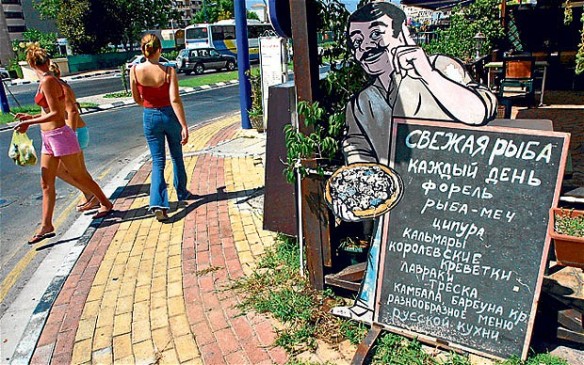Sviluppi ciprioti: l’economia dell’isola si ridurrà di 12 punti nei prossimi due anni, il presidente Anastasiades chiama “ipocriti” i paesi UE che accusano Nicosia di riciclaggio.
Last Wednesday April 10th Europe estimated that Cyprus is gonna loose the 12,5 % of GDP in the next 2 years “as the country reduces a banking sector that had ballooned to more than five times its gross domestic product”, reported the New York Times days ago. Nicosia needs now 13 billions euro and not around 7, as thought a month ago to meet the terms of a 10 billion euro Troika’s bailout. To raise money, Cyprus is under pressure to sell its prize asset (“Cyprus had already agreed to sell 400 million euros worth of gold, or an estimated 10 tons from its 13-ton reserve”) and to develop natural gas reserves. This last things makes Turkey disappointed, especially if means Russian involvement (it may “act against such initiatives if necessary”). If the island’s corporate tax increases to 12,5 and apply restrictions on withdrawals many company registered in Cyprus will leave, as other lucrative business, and many companies will close as banks cut back on issuing credit.
The Wall Street Journal graphic
The same day the Wall Street Journal wrote: “Never in the field of government bailouts have so many lost so much credibility over such a small sum of money”. “All of those involved were losers”, it concluded. WSJ remembers how German and IMF wanted to keep the bailout size down to 10 billion, and the ECB role in force Nicosia to accept and limiting the other countries’ fallout (an institution “supposedly free of political interference” making “decisions of major political significance”). “Still, at what costs”, asks himself Stephen Fidler reading the official economic forecasts. For him, the euro-zone management of the crisis, with his austerity, “has devastated growth and confidence. The usual policy options to revive economies—monetary, fiscal or exchange-rate policy—aren’t available to euro-zone countries that need it”. For Cyprus “the depositor losses were an IMF initiative from the start”, EU officials say. In addiction the Euro-zone decision-making is a mess, where the finance ministers of the Euro Group, lead by President Dijsselbloem, are insignificants and the Austrian minister Thomas Wieser oversees alone the Eurogroup Working Group that carries all the technical work; Wieser has no a direct line to the European Council President Van Rompuy, who really negotiate the final deal, but he has it with the Dutch government, and that make everything worse.
Today Reuters (and Chicago Tribune) reported that, “in prepared remarks to Russian businesspeople in the port city of Limassol, Cyprus President Nicos Anastasiades said his cabinet would this week approve the relaxation of restrictions on foreigners seeking citizenship of Cyprus”. In attempt to keep foreigners interested in investing in the island, non-resident investors who held deposits before the bailout agreement would become citizens. Anastasiades added that Countries who accused Cyprus of being a money laundering hub were “hypocrites”, since “some EU partners’ businesses involved in the financial services industry have been preying upon our financial services sector, in order to encourage a relocation of funds into their economies”. Today Nicosia also eased capital controls, making people able to transfer domestically 3.000 euros in a month and companies 50.000 euros (The Economic Times).


